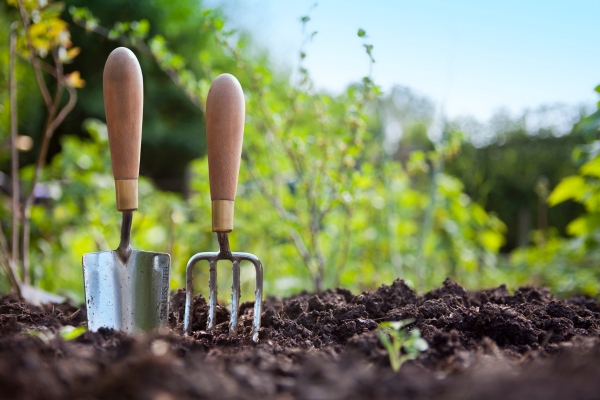Introduction
The art of gardening can be a pathway to mindfulness, a form of meditation in motion that brings us closer to nature and ourselves. The interaction with the soil, plants, and the rhythm of the seasons can offer deep insight into life and our connection with the world around us. This article explores how practicing mindfulness in the garden can cultivate serenity, connection, and a deeper understanding of the natural world.
1. Being Present in the Garden
Gardening invites us to be fully present. As we plant, water, weed, and harvest, we are asked to tune into the details: the texture of the soil, the smell of the plants, the buzz of insects, and the interplay of light and shadow.
This practice of presence can turn gardening into a form of meditation. We are no longer lost in thoughts about the past or future but rooted in the here and now, engaged with the task at hand.
Moreover, the act of being present in the garden can foster a deep sense of connection with nature and with ourselves. We can become more aware of the life that surrounds us and the life within us, fostering a sense of wonder and gratitude.
2. The Rhythms of Nature
Gardening immerses us in the rhythms of nature. We plant in the spring, watch the plants grow in the summer, harvest in the fall, and let the garden rest in the winter. This cycle mirrors the cycles of life, with its times of growth, fruition, letting go, and rest.
These rhythms can serve as a reminder of impermanence, one of life’s fundamental truths. Just as the garden changes with the seasons, so do our lives. Recognizing this can foster acceptance and ease in the face of life’s ups and downs.
Moreover, tuning into nature’s rhythms can help us align our own rhythms with them. This can lead to a more balanced and harmonious way of living, rooted in the natural flow of life.
3. Cultivating Patience
Gardening is a practice in patience. Plants grow at their own pace, not ours. We can’t rush them, and we can’t skip steps. We plant, water, and wait.
This practice can teach us patience, a quality that can serve us well in many areas of life. It reminds us that many things are out of our control and that hurrying doesn’t necessarily get us where we want to go any faster.
Moreover, cultivating patience in the garden can foster a sense of calm and ease. We can let go of the need to control and simply trust in the process, enjoying each moment as it unfolds.
4. Mindful Observation and Attention to Detail
Gardening invites us to observe closely and pay attention to detail. We need to notice the needs of each plant, the condition of the soil, the amount of sunlight and water each area of the garden gets, and the changes in the plants over time.
This mindful observation can sharpen our attention and focus, skills that are valuable in many areas of life. It can also deepen our understanding and appreciation of nature, fostering a sense of connection and wonder.
Moreover, mindful observation in the garden can awaken a sense of curiosity and playfulness. It can turn gardening into a process of discovery and learning, enriching the experience and making it more enjoyable.
5. Gardening as a Form of Self-Care
Gardening can serve as a form of self-care. It offers a break from the busyness of life, a time to be outdoors, to move our bodies, and to engage in a nurturing and creative activity.
Moreover, the act of caring for plants can mirror the act of caring for ourselves. As we nurture the plants, we can become more aware of our own needs and the importance of taking care of ourselves.
In addition, gardening can foster a sense of accomplishment and satisfaction. Seeing the fruits of our labor can boost our mood and self-esteem, making us feel good about ourselves and our ability to contribute to the beauty of the world.
6. The Healing Power of Nature
Gardening connects us with the healing power of nature. There is something deeply soothing and grounding about putting our hands in the soil, feeling the sun on our skin, and witnessing the miracle of growth.
This connection with nature can bring a sense of peace and wellbeing. It can calm our minds, lift our spirits, and nourish our souls.
Moreover, being in nature can foster a sense of belonging and connection. We can realize that we are part of a larger whole, not separate or isolated. This can reduce feelings of loneliness and alienation and foster a sense of kinship with all life.
7. Cultivating Gratitude
Gardening can cultivate a sense of gratitude. As we see the plants grow and bear fruit, we can appreciate the miracle of life and the abundance of nature.
This sense of gratitude can extend to other areas of life as well. As we recognize the beauty and abundance in the garden, we can start to notice and appreciate the beauty and abundance in our lives.
Moreover, gratitude can foster a sense of contentment and joy. It can shift our focus from what’s lacking to what’s already present, fostering a sense of satisfaction and fulfillment.
8. Growing Mindfulness with the Garden
Just as we can grow plants in the garden, we can grow mindfulness. Each time we step into the garden, we can use it as a reminder to be present, to observe closely, to cultivate patience and gratitude, and to connect with the healing power of nature.
Over time, these qualities can spill over into the rest of our lives, transforming not just our experience of gardening but our experience of life as a whole. We can become more present, attentive, patient, grateful, and connected, not just in the garden but wherever we are.
Moreover, as we cultivate mindfulness in the garden, we can also cultivate a deeper connection with ourselves. We can become more aware of our thoughts, feelings, and sensations, fostering a sense of self-understanding and self-compassion.
Conclusion
Gardening and mindfulness are natural companions. As we tend to our garden, we can tend to our mind, cultivating presence, patience, attention, self-care, connection, gratitude, and mindfulness itself. The garden can become a living meditation, a sanctuary where we connect with nature, ourselves, and the flow of life. Whether we have a large garden or a few pots on a windowsill, gardening can be a pathway to serenity, connection, and a deeper appreciation of the miracle of life.



